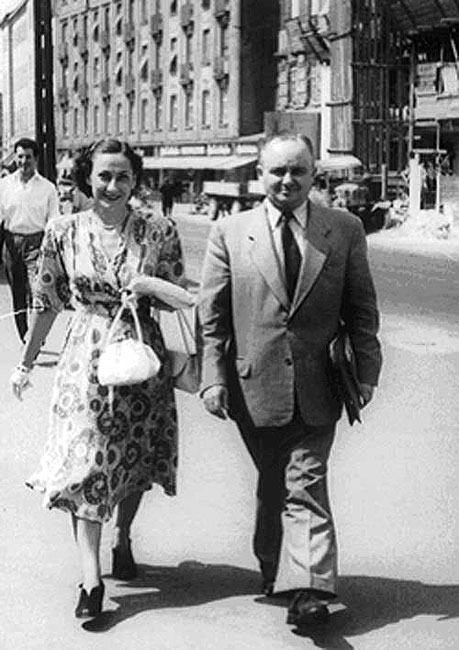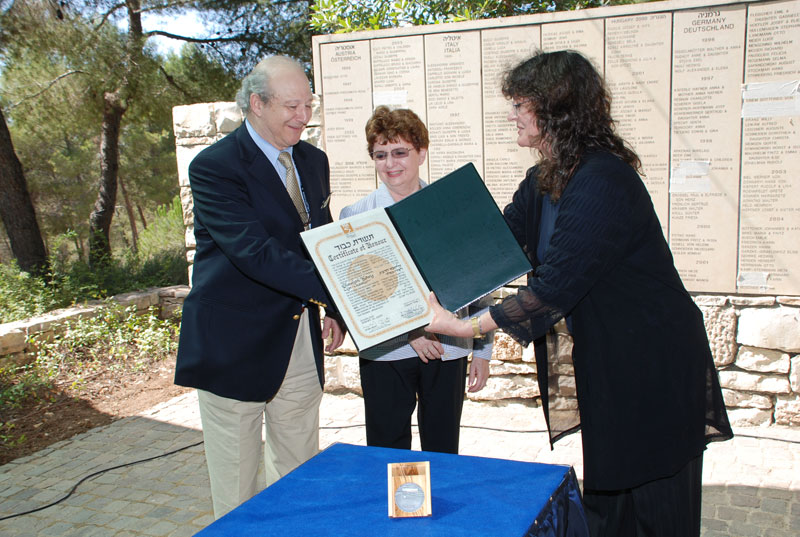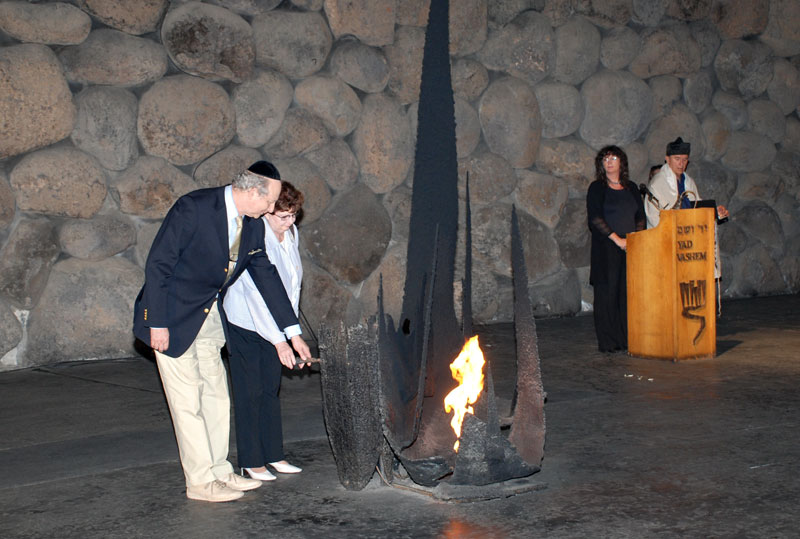Edward and Dora Gessler, a Jewish couple, lived with their children, a cook and a housekeeper in the city of Beilsko Biala in Southern Poland. In 1938, Elisabeth Hedwig Leja, a Polish Catholic woman of ethnic German origin (Volksdeutsche) joined the family as a nanny and caretaker of the family’s three young children, Elek, 11, Lili, 4, and Roman, 1.
At the outbreak of the war, rather than join her family in safety, Elisabeth chose to remain with the Gesslers and help them as they fled from Beilsko Biala to Lvov. In Lvov, Dora, unable to bear the strain, committed suicide. Elisabeth remained to assist Edward, now a widower with three young children. Towards the end of 1941, Edward and his son Elek escaped to Hungary. Lili and Roman remained in the care of Elisabeth. Several months later, in March 1942, fearing for their lives, Elisabeth, Lili and Roman fled Lvov, and journeyed to Hungary via the Carpathian Mountains to join Edward and Elek. Elisabeth sewed her meager valuables into the lining of young Roman’s coat, and hired a rickety cart and two guides to take them through the mountains. As darkness approached, the group was stopped by the Gestapo. Elisabeth, with her native German, successfully convinced the officers that she was hurrying to find a doctor for her sick children. Eventually the group was reunited with Edward and Elek in Budapest.
Edward and Elisabeth, in possession of forged passports, were arrested in 1944 and sent to a concentration camp. The younger two children remained in the care of their older brother after Elisabeth persuaded the Germans not to arrest them as well. After using her connections with the Catholic Church in Budapest to secure their release from the camp, the family fled to Romania where they remained until the end of the war.
During the entire period of the war, Elisabeth protected the Gessler children with the utmost devotion and love, at real risk to her own welfare. She taught them Christian customs, dyed Lili’s hair lighter, taught them to speak German and presented them as her own children whenever questioned.
Elisabeth remained with Edward and the children and they married in 1965. Edward passed away in 1978 and Elisabeth in 1983.
On October 11, 2007, the title of Righteous Among the Nations was posthumously bestowed upon Elisabeth Hedwig Leja Gessler. The medal and certificate of honor were presented to the stepchildren of Elisabeth Gessler, Mrs. Elisabeth (Lili) Win-Gessler of Virginia and Mr. Roman Gessler of Israel.
A poignant ceremony at Yad Vashem on October 11, 2007, the title of Righteous Among the Nations was posthumously bestowed upon Elisabeth Hedwig Leja Gessler, responsible for saving three children during the Holocaust.
Elisabeth Hedwig Leja, who was a Catholic nanny for the Gessler family in Poland, did not abandon the family even when they were forced to flee as a result of the Nazi occupation. She hid the identity of the children, presenting them instead as her own, risking her own life in the process. Afterwards, using her fluent knowledge of German to pass undetected through German checkpoints, she managed to smuggle the children to Hungary on a long and arduous journey. When Elisabeth was arrested in Hungary along with the father of the family, she once again saved the children’s lives, somehow convincing the Germans not to deport them. She was sent to a concentration camp, yet survived.
Present at the ceremony were Mrs. Elisabeth (Lili) Win-Gessler of Virginia, USA, and Mr. Roman Gessler of Israel who were saved by Elisabeth Gessler and who became her stepchildre after the war, when she married their father. They received the medal and certificate of honor in the Garden of the Righteous Among the Nations and unveiled Elisabeth Gessler’s name, etched on the wall honoring Righteous Among the Nations from Germany.
At present, around 21,700 people have been recognized as Righteous Among the Nations, including 443 from Germany.



